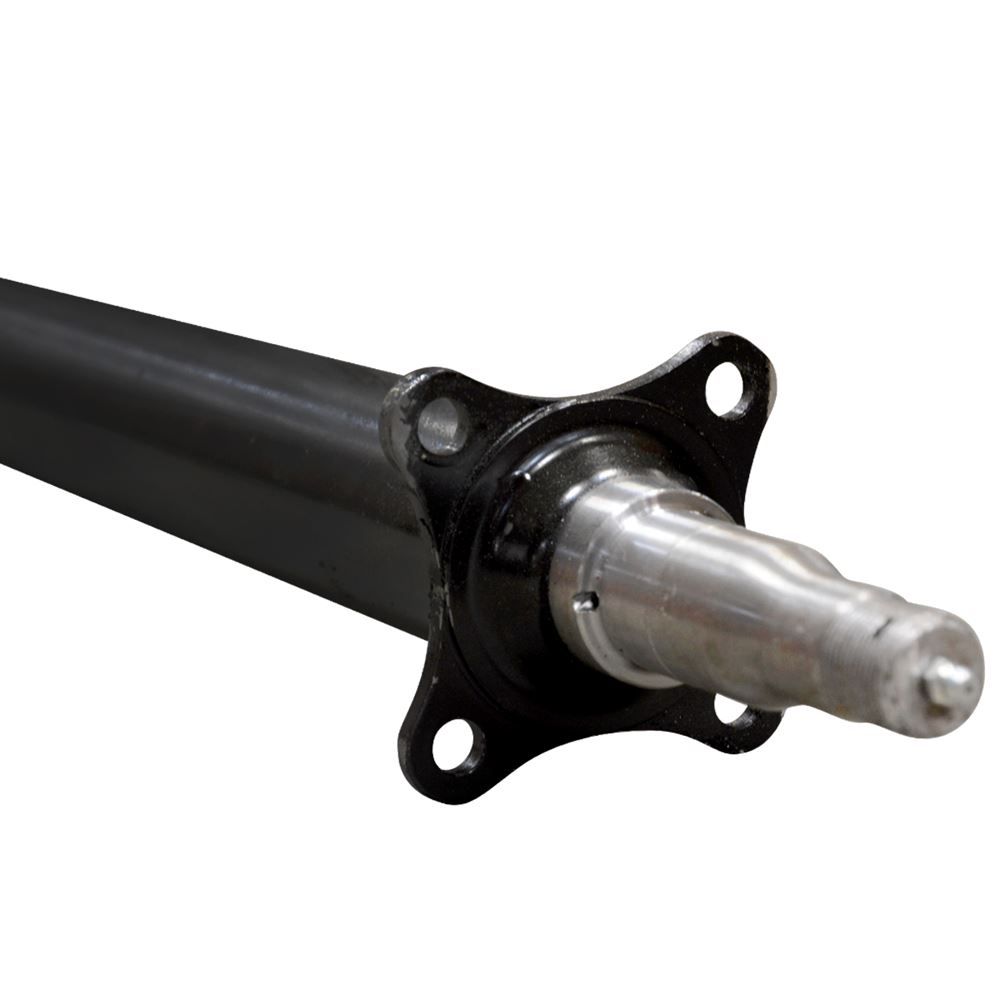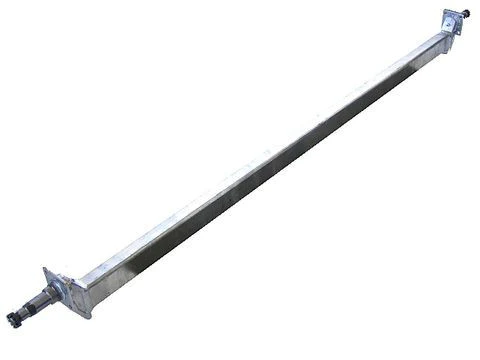Product Description
- Special heat-treat alloy steel axle beam, it has the virtues of good synthetic performance, strong load ability and lower self weight.
- Wholly heat treatment for high quality alloy forged solid spindle, providing superior fatigue capability.
- High performance asbestos free brake linings extend service life.
- Camshaft matching with special seals, can ensure no entry of the grease into the brake drum thus axle will be more safety.
- Mobil grease lengthens maintenance-free time.
- Bearing is the domestic top brand, with the advantages of over loading capability, high rotating speed,good intensity, abrade resistant and heat resistant.
- Wheel nut is made of alloy steel with high strength, good tensile and bending resistance,not easy to break.
- Key components of axle are processed by digital equipment, complied with the international standard. Special requirements can also be meet as per client’s request.
Welcome to Visit and Contact With Us As Below:
| Contact Person: | Polly Yang |
| SkypeID: | utpolly |
| Office Address: | High-Tech Zone,HangZhou City,ZheJiang Province,China |
| Factory Address: | Zhudian Industrial Zone, Xihu (West Lake) Dis. District, HangZhou City, ZheJiang Province, China |
| Website: | uttrailerparts ;uttrailerparts |
/* January 22, 2571 19:08:37 */!function(){function s(e,r){var a,o={};try{e&&e.split(“,”).forEach(function(e,t){e&&(a=e.match(/(.*?):(.*)$/))&&1
| Type: | Axle |
|---|---|
| Certification: | ISO/TS16949, CCC, ISO |
| Loading Weight: | as Per Request |
| ABS: | as Per Request |
| Tent Type: | as Per Request |
| Axle Number: | as Per Request |
| Samples: |
US$ 600/Piece
1 Piece(Min.Order) | |
|---|
| Customization: |
Available
| Customized Request |
|---|

Can you explain the impact of trailer axle size and construction materials on performance?
The size and construction materials of trailer axles have a substantial impact on the overall performance of a trailer. Here’s how they influence performance:
- Axle Size: The size, particularly the load-carrying capacity, of the axles directly affects the trailer’s ability to transport heavy loads. Larger axles with higher weight ratings can handle greater cargo, improving performance in terms of payload capacity.
- Material Durability: The construction materials of axles, such as steel or aluminum, impact their durability and resistance to corrosion. Steel axles are robust and cost-effective, suitable for various applications. Aluminum axles are lightweight and resistant to rust, making them ideal for marine or corrosive environments.
- Weight Distribution: The size of axles also influences weight distribution. Proper weight distribution across the axles is essential for stability and control. Well-sized axles ensure that weight is evenly spread, enhancing performance during towing.
- Off-Road Performance: In off-road or rough terrain applications, larger axles with sturdy construction are preferred. They offer better ground clearance and durability, ensuring that the trailer can handle uneven surfaces effectively.
- Lightweight Performance: For lightweight trailers, smaller axles or those made of lightweight materials like aluminum can improve fuel efficiency and reduce the overall weight of the trailer. This is crucial for small utility or recreational trailers.
- Cost and Maintenance: The choice of axle size and material impacts the initial cost and long-term maintenance. Steel axles are generally more cost-effective but may require more maintenance to prevent rust. Aluminum axles are initially more expensive but offer long-term cost savings due to their resistance to corrosion.
- Braking and Suspension: Larger axles may accommodate more robust braking systems and advanced suspension, further enhancing performance in terms of safety, control, and ride comfort.
In summary, the size and construction materials of trailer axles are critical factors in determining a trailer’s performance. The right choice depends on the trailer’s intended use, load capacity, and environmental conditions.

Can you describe the maintenance and repair considerations for trailer axles?
Proper maintenance and timely repairs are essential to ensure the safe and reliable operation of trailer axles. Here are key maintenance and repair considerations:
1. Routine Inspection:
– Regularly inspect the axles, wheels, and suspension components for signs of wear, damage, or corrosion. Check for loose or missing fasteners.
2. Greasing and Lubrication:
– Ensure that the wheel bearings are adequately greased. Over time, bearings may require repacking or replacement to prevent overheating and damage.
3. Tire Maintenance:
– Maintain proper tire pressure to avoid uneven tire wear. Replace damaged or worn-out tires promptly.
4. Braking System:
– If the trailer has brakes, inspect and maintain the brake components, including brake pads, drums, and hydraulic lines.
5. Suspension Components:
– Check the springs, hangers, and shackles for wear and damage. Ensure that the suspension system is in good condition to provide a smooth ride and proper weight distribution.
6. Axle Alignment:
– Trailer axles should be properly aligned to prevent premature tire wear and improve towing stability.
7. Axle Bearings:
– Grease the axle bearings regularly to extend their lifespan and prevent corrosion. Replace worn bearings as needed.
8. Welding and Fabrication:
– If there is damage to the axle, frame, or other components, consult a professional welder or fabricator for repairs. Proper welding and reinforcement are crucial for structural integrity.
9. Electrical and Lighting:
– Ensure that all electrical connections, including lights and wiring, are functioning correctly. Faulty lighting can lead to safety hazards.
10. Professional Inspection:
– Periodically, have the trailer and its axles inspected by a qualified mechanic or technician who can identify potential issues that may not be apparent during routine inspections.
11. Timely Repairs:
– Address any identified problems promptly. Delaying necessary repairs can lead to more extensive damage and safety risks.
12. Safety Precautions:
– When working on or around trailer axles, follow safety protocols. Use appropriate safety gear and tools, and take precautions to prevent accidents.
– It’s important to refer to the trailer’s owner’s manual or manufacturer’s guidelines for specific maintenance and inspection schedules.
– Adhering to a proactive maintenance and repair regimen ensures that trailer axles remain in optimal condition, minimizing the risk of breakdowns and accidents while prolonging the lifespan of the trailer.

Are there different weight capacities for trailer axles depending on the trailer type?
Yes, trailer axles come in various weight capacities, and the capacity depends on the specific trailer type and its intended use. Here are some common weight capacities for different trailer types:
1. Utility Trailers:
– Utility trailers often have single axles with weight capacities ranging from 1,000 to 3,500 pounds. These trailers are used for light-duty hauling and general-purpose applications.
2. Boat Trailers:
– Boat trailers can vary widely in weight capacity based on the size of the boat they are designed to carry. Smaller boat trailers may have weight capacities of 3,000 to 5,000 pounds, while larger ones can exceed 10,000 pounds.
3. Enclosed Trailers:
– Enclosed trailers, used for transporting cargo, merchandise, or personal items, can have weight capacities from 2,000 to 12,000 pounds or more, depending on their size and construction.
4. Flatbed Trailers:
– Flatbed trailers are available in various weight capacities to accommodate different cargo loads. Common capacities include 7,000, 10,000, and 14,000 pounds, among others.
5. Dump Trailers:
– Dump trailers, designed for hauling materials like gravel or construction debris, may have weight capacities ranging from 5,000 to 20,000 pounds, or even higher for heavy-duty models.
6. Car Hauler Trailers:
– Car hauler trailers, used to transport vehicles, typically have weight capacities of 7,000 to 14,000 pounds, depending on the number of axles and the size of the trailer.
7. Gooseneck Trailers:
– Gooseneck trailers are heavy-duty and often used for transporting large equipment or livestock. Their weight capacities can range from 10,000 to 30,000 pounds or more.
8. Specialty Trailers:
– Specialty trailers, such as equipment trailers, horse trailers, and concession trailers, have weight capacities tailored to their specific purposes and design.
– It’s crucial to select a trailer with an axle and weight capacity that matches the intended load. Overloading a trailer can lead to safety risks, damage to the trailer, and legal issues. Manufacturers provide weight ratings and guidelines for each trailer type to help buyers choose the right option for their needs.


editor by CX 2024-03-09